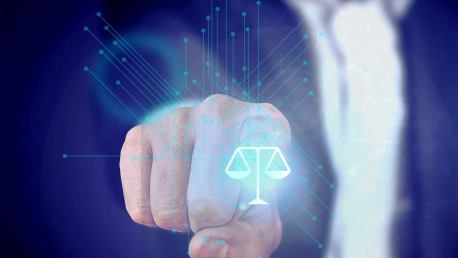Artificial Intelligence is reshaping the legal industry by automating routine tasks and optimizing workflow for legal professionals. AI tools enhance efficiency, allowing lawyers to concentrate on complex legal issues. These innovations facilitate meticulous document analysis and improve legal research, expediting processes and boosting accuracy. Furthermore, AI’s predictive analytics abilities can forecast case outcomes with notable precision. As a result, law offices are evolving into advanced operations, where swift and precise legal work leads to more effective counsel and enhanced client satisfaction. This transformation, powered by AI, is a testament to the synergy between technology and the legal system, showcasing a future where the law can function more seamlessly and with greater accessibility.
Streamlining Legal Operations
The application of AI in streamlining day-to-day operations is one of the most significant shifts within legal practices. From sorting emails to managing case files, AI-enabled systems can conduct time-consuming tasks in a fraction of the time it would require a human. Sophisticated algorithms are now discerning patterns in case law to assist in legal research, while predictive tools are helping attorneys anticipate case outcomes. This optimization not only saves valuable time but also reduces the risk of human errors. Consequently, legal professionals can dedicate more time to crafting legal strategies, advising clients, and representing them in court.
Ethical Considerations and the Role of Regulation
The incorporation of AI into the legal sector brings with it a host of ethical challenges, with bias, clarity, and responsibility of AI-enabled decisions at the forefront. As the legal domain adapts to this technological shift, establishing guiding principles and stringent regulations is key to preventing adverse outcomes from AI usage. Legal entities across the globe are actively working to develop such frameworks to minimize the threats posed by AI technologies. The goal is to complement the legal process with AI without undermining it. Ethical guidelines and regulatory controls are critical in preserving the legal system’s integrity, safeguarding client confidentiality, and administering justice. These guidelines are fundamental to harnessing AI’s capabilities within the legal arena in a manner that is both responsible and effective. Navigating this new terrain requires a careful balance, ensuring AI tools serve the law without giving rise to new forms of legal inequity.









